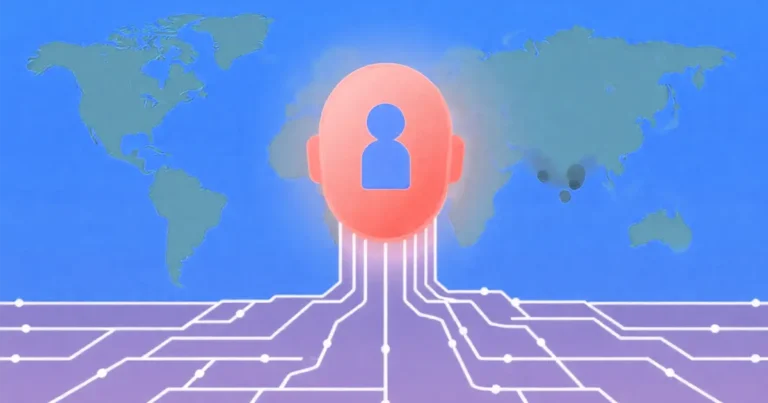27-5-2025 – In an era where our online existence is a tangle of countless logins, passwords, and personal details strewn across the digital landscape, the concept of digital identity has become a labyrinthine burden. Each of us juggles an array of credentials—emails, social media accounts, streaming services, and that obscure app we signed up for on a whim. This fragmented reality leaves our personal information vulnerable, entrusted to corporations whose security measures sometimes falter, exposing our data to the shadowy corners of the internet.
Yet, a transformative solution is emerging, one that promises to redefine how we navigate our digital lives: blockchain-based digital identity. Far from being the exclusive domain of cryptocurrency enthusiasts, blockchain offers a revolutionary approach to empowering individuals with control over their own data. This technology, with its secure and transparent framework, could herald a new era of privacy and autonomy online.
The power of self-sovereign identity
At the heart of this shift lies self-sovereign identity—a system where you, and you alone, dictate the terms of your digital presence. Imagine a digital passport, not issued by any authority but stored securely on a blockchain, with you holding the key. Unlike the current model, where your name, birthdate, and preferences are scattered across corporate databases, blockchain consolidates your identity into a single, encrypted vault. You decide what to share—whether it’s proving you’re over 18 without disclosing your full birthdate or logging into a service without the hassle of yet another password.
This approach flips the script on the status quo. No longer are companies the gatekeepers of your data; you are. Blockchain’s design ensures your information is tamper-proof, reducing the risk of breaches that have become all too common. It’s a system built for privacy, efficiency, and user empowerment, streamlining how we interact with the digital world.
Why this matters for you
The implications of blockchain-based digital identity extend far beyond technical jargon—they touch the core of how we live online:
- An End to Password Fatigue: Forget the endless cycle of forgotten passwords and reset emails. A blockchain-powered digital wallet lets you authenticate your identity with a tap, making logins seamless and secure.
- Fortified Security: With your data encrypted and stored on a decentralised blockchain, hackers face a near-impossible task. Your information isn’t sitting on a vulnerable corporate server—it’s under your control.
- Selective Sharing: Need to verify your age or identity? Share only the necessary details, keeping the rest private. This minimises oversharing and protects your personal information.
- Reclaiming Ownership: Today, your data is often exploited for profit by “free” services. Blockchain shifts the power back to you, ensuring you’re not just a commodity but a person with agency.
- Inclusivity for All: For millions without traditional identification, blockchain offers a way to create secure digital IDs, unlocking access to banking, healthcare, and other critical services.
Real-world impact
This isn’t just theoretical—blockchain-based digital identity is already making waves. In regions where traditional IDs are scarce, people are using blockchain to access essential services, bridging gaps in healthcare and finance. Meanwhile, everyday users are logging into platforms with digital wallets, bypassing the need for cumbersome passwords. From secure voting systems to streamlined travel documentation, pilot programmes worldwide are showcasing the technology’s potential to simplify and safeguard our digital interactions.
Hurdles on the horizon
For all its promise, blockchain-based digital identity is still in its infancy. Widespread adoption faces challenges, not least because many remain unaware of its benefits. It’s a bit like introducing a groundbreaking gadget to a world accustomed to older ways—education and time are needed for it to catch on. Additionally, not all platforms or governments are equipped to integrate this technology yet, meaning traditional logins and IDs remain in use for now.
Yet the tide is turning. Governments and businesses are increasingly trialling blockchain solutions, from healthcare records to secure voting systems. As these initiatives gain traction, the infrastructure for blockchain-based identity will expand, paving the way for broader acceptance.
A future worth watching
Blockchain is far more than the backbone of cryptocurrencies—it’s a tool poised to reshape how we assert our identity online. By placing control firmly in your hands, it offers a safer, simpler, and more private way to navigate the digital realm. While challenges remain, the momentum is undeniable, with global trials signalling a shift towards a future where your digital identity is truly yours.
This isn’t just about technology—it’s about reclaiming your place in the digital world, free from the chaos of scattered data and vulnerable systems.


